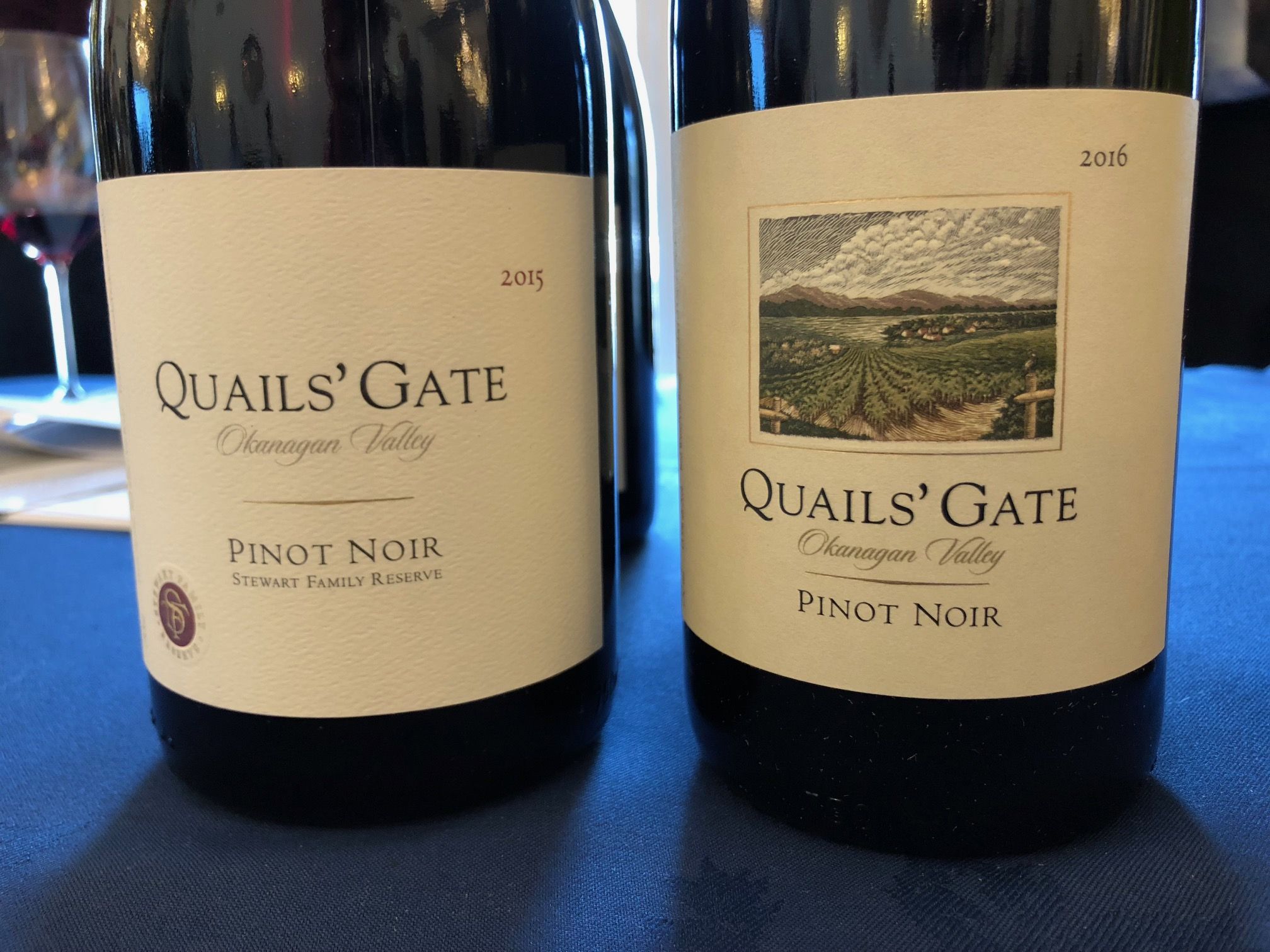“One can’t help but sense that a Koshu wine transformation is underway,” writes De Pasquale.
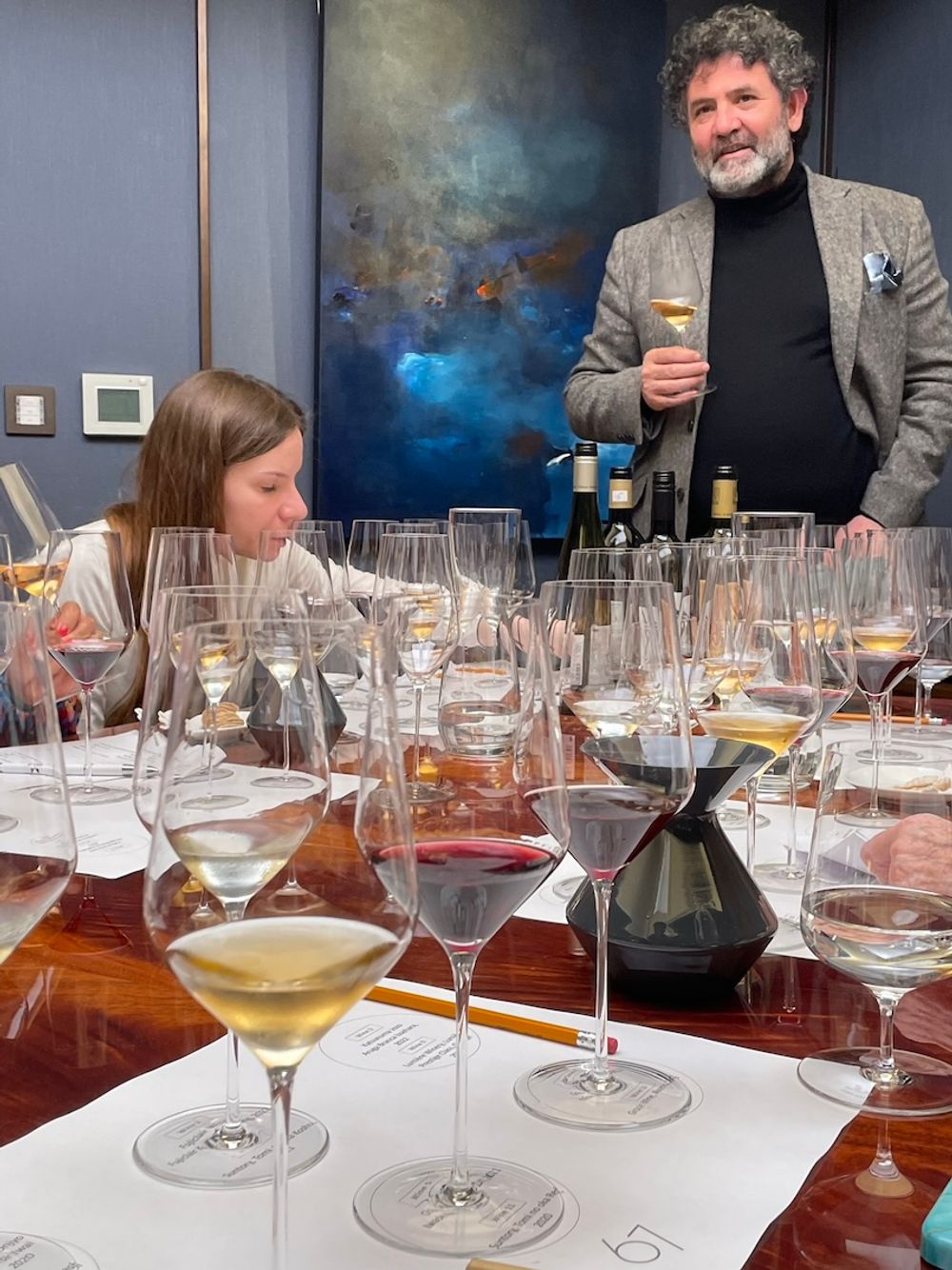
Isa Bal MS hosting the Koshu Masterclass
“If I were to include Koshu on my wine list, I would need to feature more than one to showcase the versatility of the grape,” says Isa Bal MS of the 2 Michelin-starred restaurant Trivet. This statement comes after hosting the Koshu masterclass at the 15th annual trade tasting at 67 Pall Mall in London. Recognising that it has not been the easiest time for the UK hospitality industry, he remains optimistic about the future of Koshu in the UK, particularly in the premium on-trade sector.
“Let’s face it; it’s not just about the wine. It’s about the image of the producing country, Japan, which is arguably one of the most positive in the world,” adds Bal, who also believes that Koshu producers should leverage this positive image and strive for a permanent presence in the UK.
This is precisely what Koshu of Japan (KOJ) was set up to achieve. Established in 2009 by 15 Japanese wine producers from Yamanashi Prefecture, they have been championing Koshu wines worldwide. A significant milestone was reached in 2013 when the Koshu grape gained recognition from the International Organisation of Vine and Wine (OIV). Since then, Koshu has been making slow but steady progress, with now six importers currently bringing Koshu wine into the UK.
With its limited production and premium price point, Koshu remains a niche within a niche in the UK. Even in Japan, it is not easily found. Hiroki Fujimori, a wine educator for the Academie du Vin in Tokyo, points out that “most Japanese don’t drink wine; roughly 10% do, but not many would have tasted Koshu wine.” However, he stresses that “it’s a famous grape variety, and most Japanese would have heard of it.”
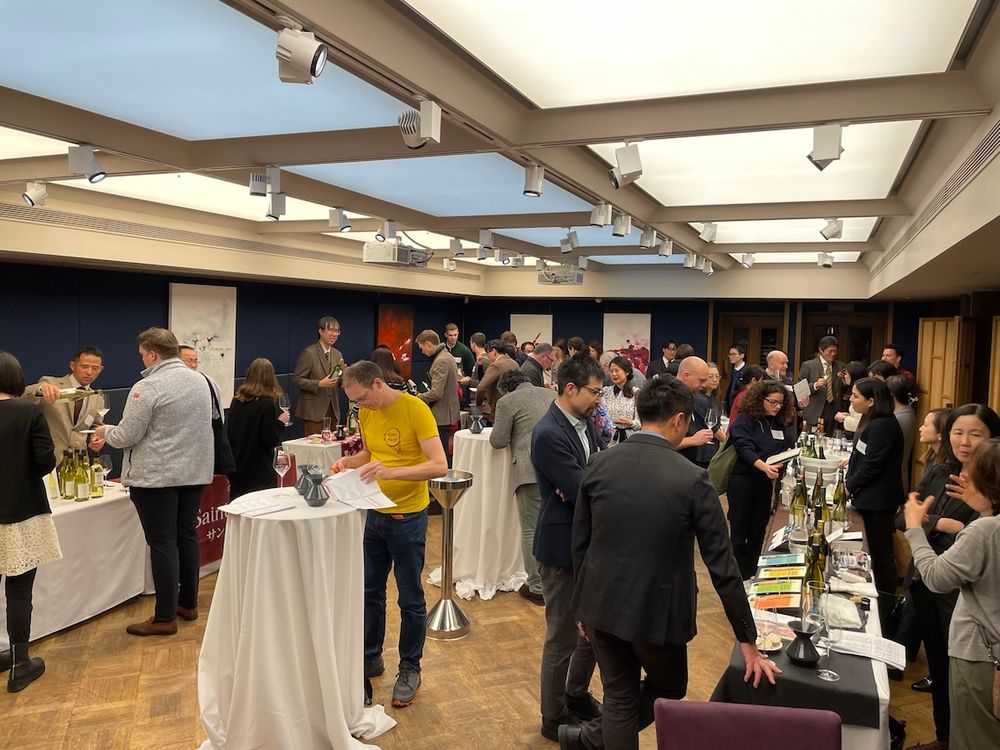
5 Koshu of Japan’s 15th annual trade tasting in 67 Pall Mall
Even a bit further afield in Hong Kong and Taiwan, Koshu’s popularity skyrocketed when the acclaimed Japanese television series Grand Maison Tokyo starring the renowned Takuya Kimura, featured Grace Wine’s Gris de Koshu in a memorable scene. Subsequently, its 2018 vintage sold out instantly. To this day, the wine is still referred to as “Kimura wine.” Koshu’s name has spread beyond the circle of wine enthusiasts, capturing the attention of many consumers in East Asia within a short space of time.
It’s a different scene across the globe in the UK. Here, those acquainted with Koshu likely remember its zen-like purity and neutrality, often comparing it to Muscadet or Sauvignon Blanc. Others might mistakenly associate it with Japanese Sake.
“We need more people telling the story of Koshu,” says Elyse Li, the MD of Japan Gourmet UK, who has been importing Kurambon Wine, a low-intervention Koshu wine producer, to the UK for the past decade. Li notes that “for many of our on-trade clients, Koshu is primarily reserved for tasting menus rather than regular wine lists, so the sales volume remains modest. There is a lot of work to be done, and we need more people to be passionate about it and willing to spread the word.”
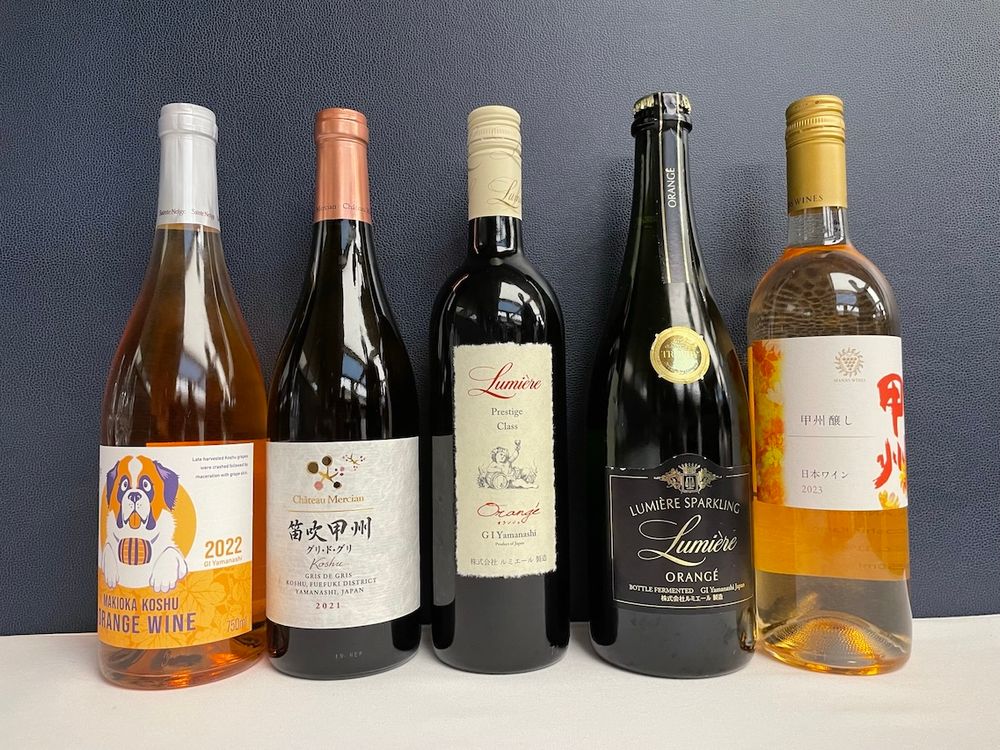
6 Koshu orange wines
Koshu masterclass was a revelation
Much-needed enthusiasm for Koshu was easily seen during the recent KOJ Koshu masterclass hosted by Isa Bal MS. Attendees were amazed by Koshu’s diversity and quality. No longer limited to comparisons with only Sauvignon Blanc or Muscadet, the Chateau Honjyo Koshu Sparkling Hoshiai-no-sora 2020, made using the traditional method, was likened to a grower Champagne.
Others described Chateau Mercian Iwade Koshu Ortum 2021 as having a Burgundian style. The Prestige Class Orange Wine 2022 from Lumiere Winery, using carbonic maceration, received a huge thumbs-up even from those not usually keen on skin-contact wines. Sainte Neige Makioka Koshu Orange Wine 2022, with a 3-day skin contact, is not only delicious but also features an adorable dog label inspired by one of the grower’s dogs that ‘barks a lot,’ making it the most Instagrammable wine of the day. One can’t help but sense that a Koshu wine transformation is underway.
Certainly, it comes with a price tag, but it’s justified by the challenging growing conditions in Japan, precise winemaking, and limited production. The style is versatile, including sur lie, barrel fermentation, sparkling, orange, and oak ageing. Most importantly, it is delightful to drink. Additionally, its alcohol content rarely surpasses 12%, aligning well with the lower ABV trend.
The price point could be an obstacle but, as Bal points out, these are all premium wines and will need hand-selling in any case. Place them in the right wine-focused restaurants, wine bars, and perhaps a few wine shops and “Before you know it, Koshu wine will have a UK presence. But that presence needs to be constantly maintained,” says Bal. He also has a word of warning for producers seeking representatives in the UK aiming to reach a broader audience. “Take it out of the ethnic market because, at the end of the day, if you bring Japanese food or wines and only sell them through Japanese distributors, their reach is limited to Japanese outlets.”
With its versatility, positive image, and lower ABV characteristic, it seems Koshu is poised to reach its prime in the UK, slowly but surely.
Ten Koshu wines and producers to have on your radar
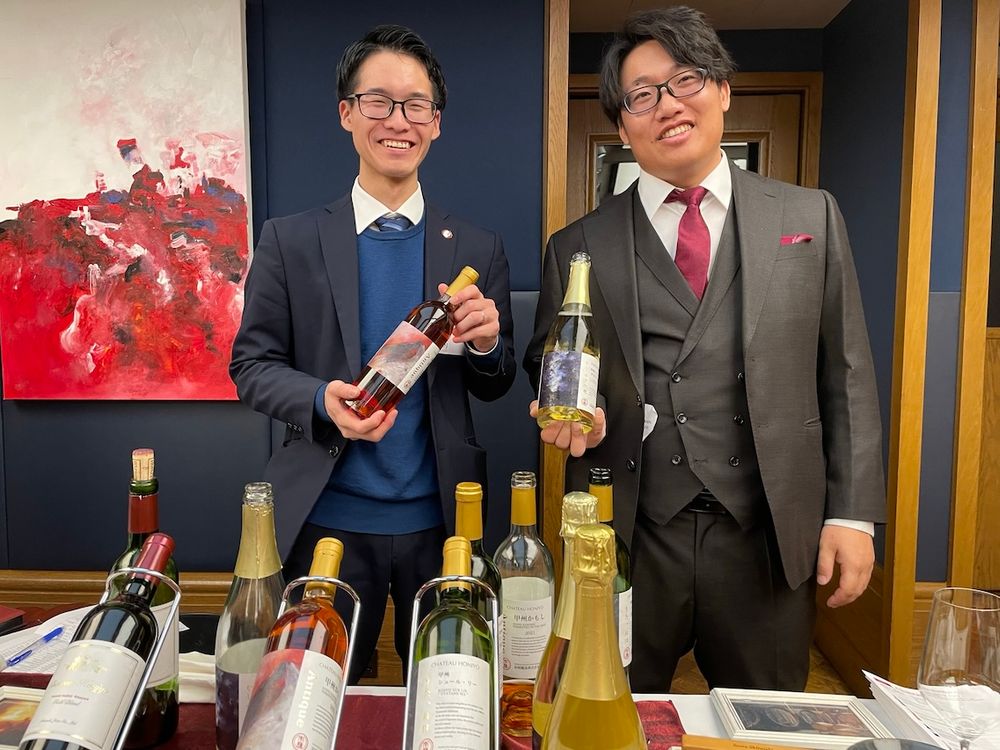
Soma Shiraishi of Iwasaki Jozo and Hiroki Fujimori of Academie du Vin Tokyo (r-l)
Chateau Honjyo Koshu Sparkling Hoshiai-no-sora 2020
Traditional method. Smoky and toasty brioche notes, complemented by yuzu zest that brings a burst of fresh acidity.
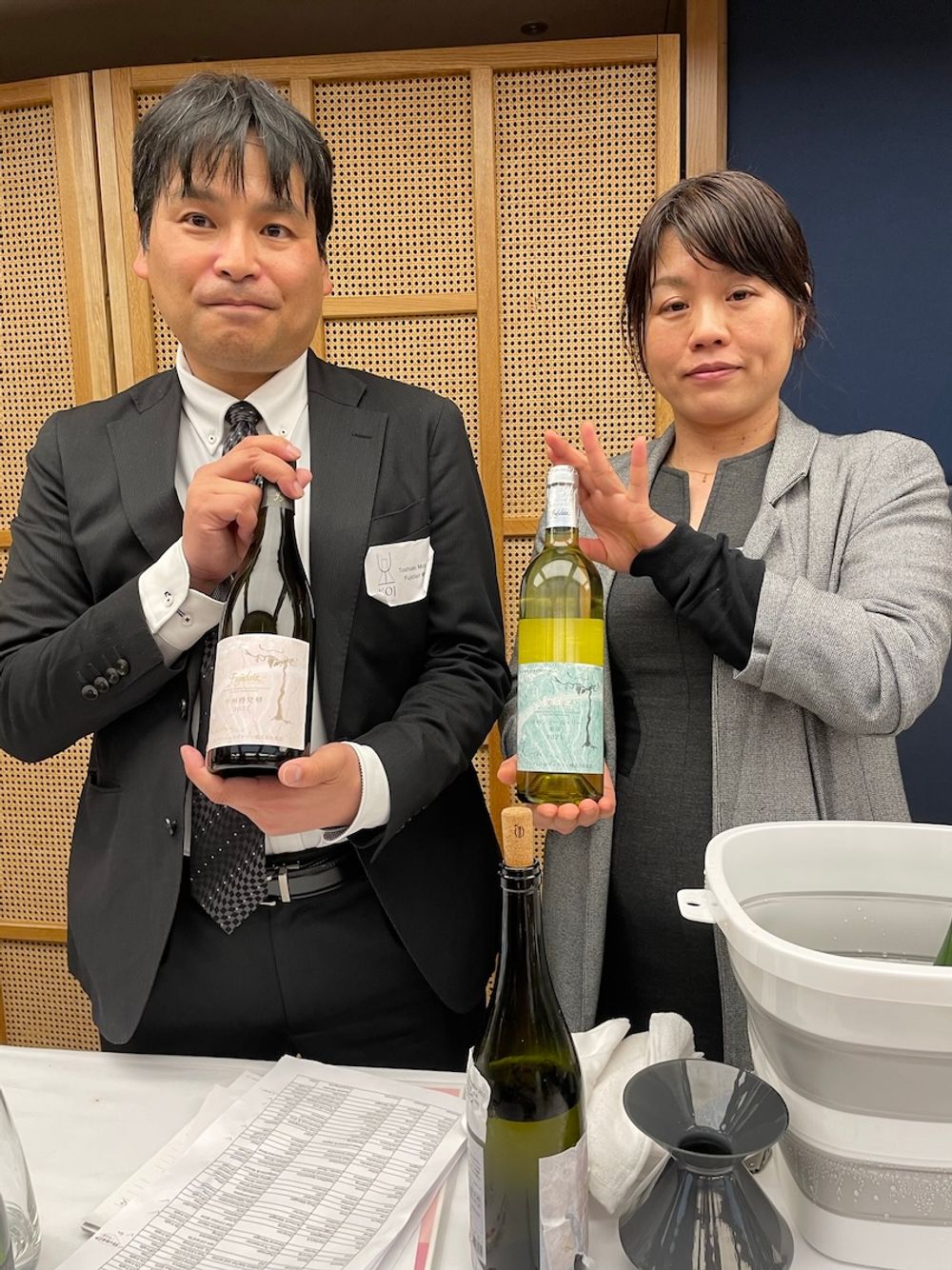
Representatives of Fujiclair winery
Fujiclair Koshu Sparkling 2022
Traditional method. Juicy mirabelle with a rounded texture and a savoury, briny finish.
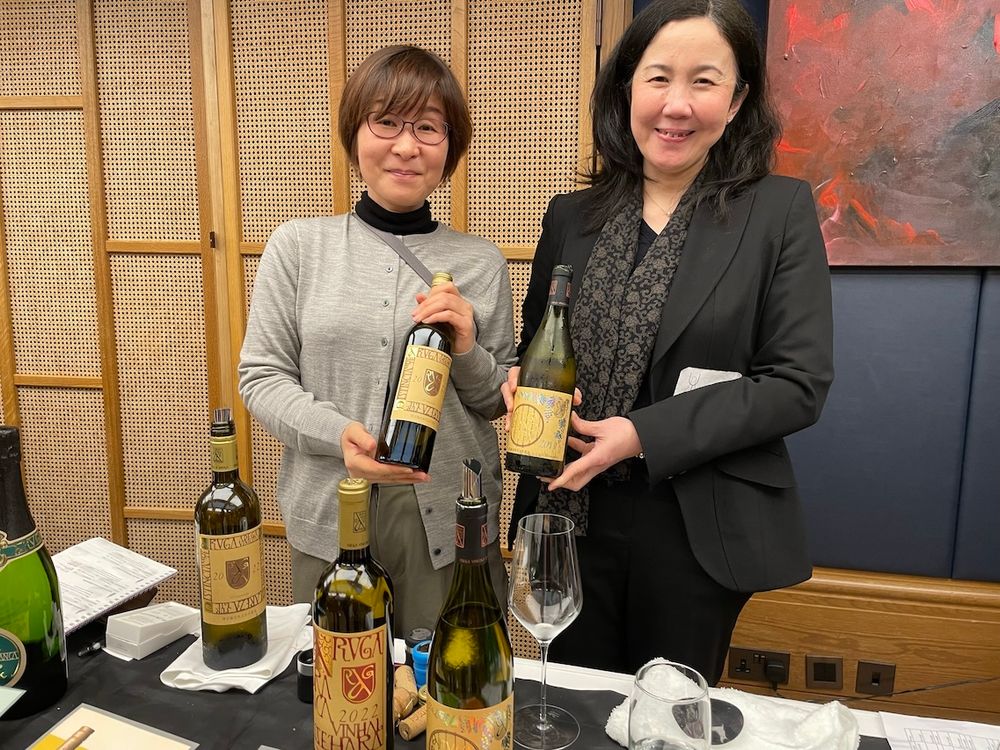
Aruga Branca Issehara 2022 (UK Importer: Japan Food Express)
Pretty aromatic, with a tangy pomelo note that culminates in a refreshing, juicy finish.
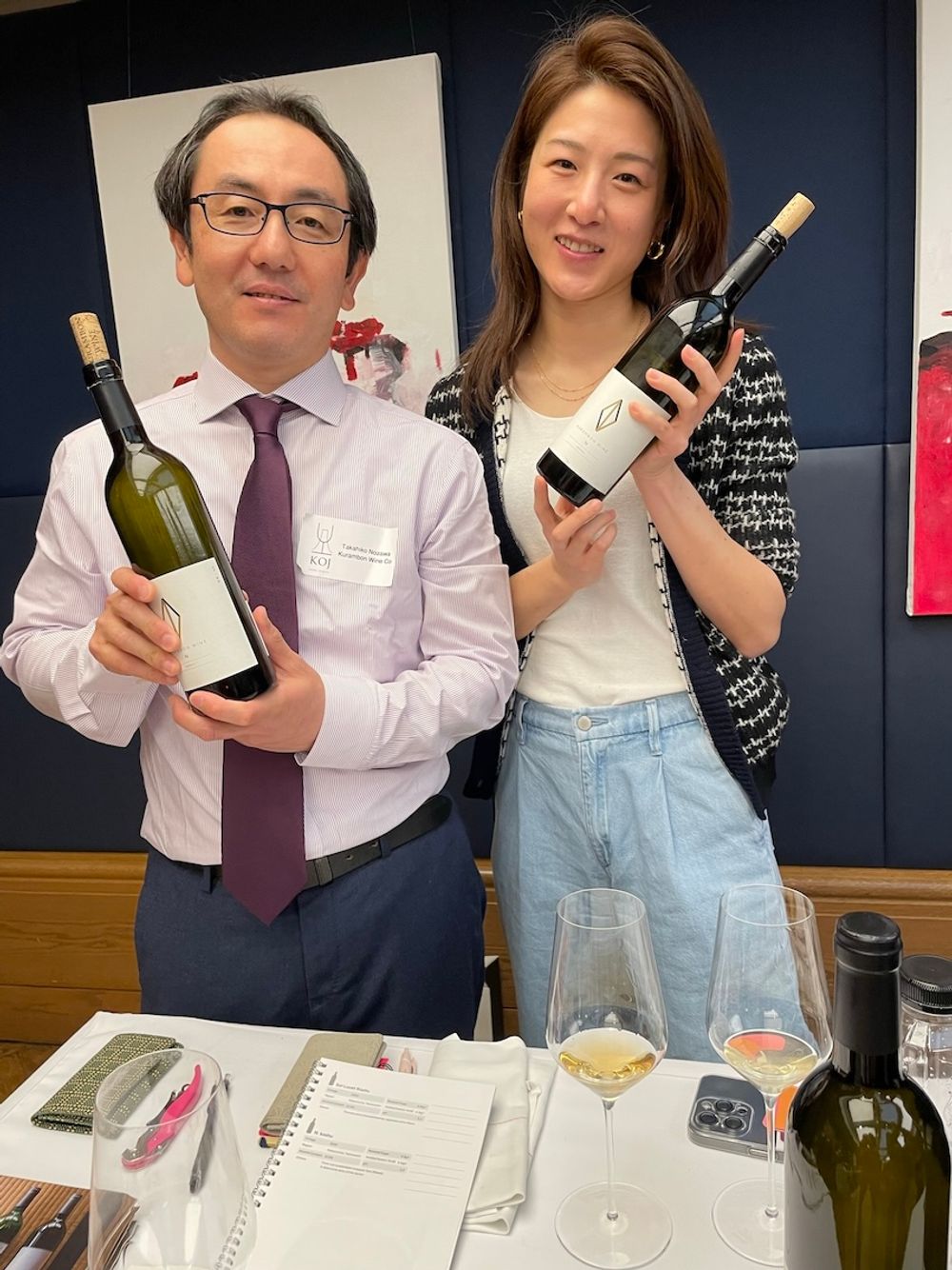
Takahiko Nozawa of Kurambon Wine and Elyse Li its UK importer Ueno Gourmet (l-r)
Kurambon Wine, SoL Lucet Koshu 2023 (UK Importer: Japan Gourmet)
Ripe pear and apple notes, with a finish that combines richness from lees and a zesty touch.
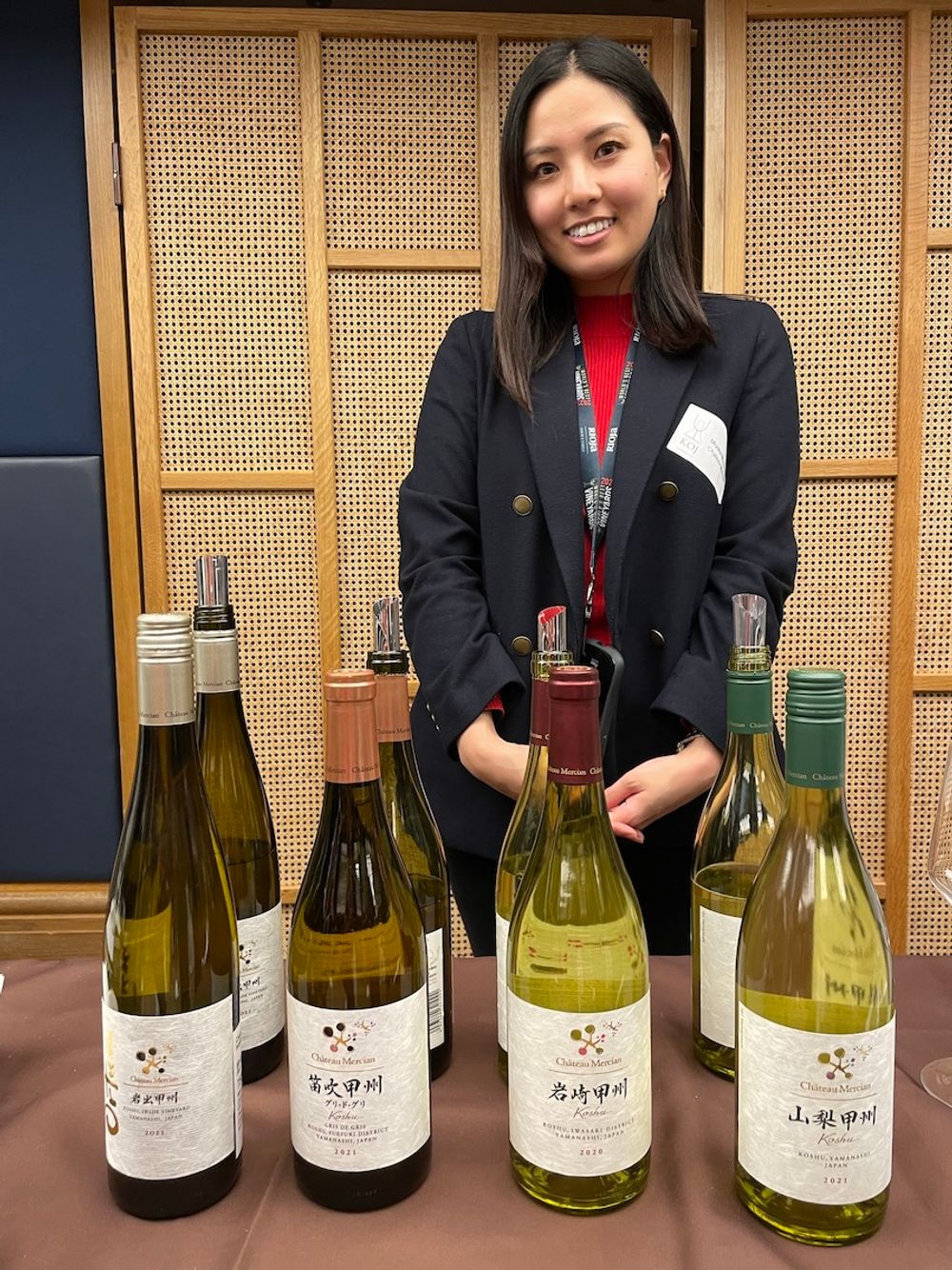
Chateau Mercian Iwade Koshu Ortum 2021 (UK importer: Boutinot)
Exceptionally pure, with apple and citrus notes, accompanied by refreshing acidity and a lingering finish.
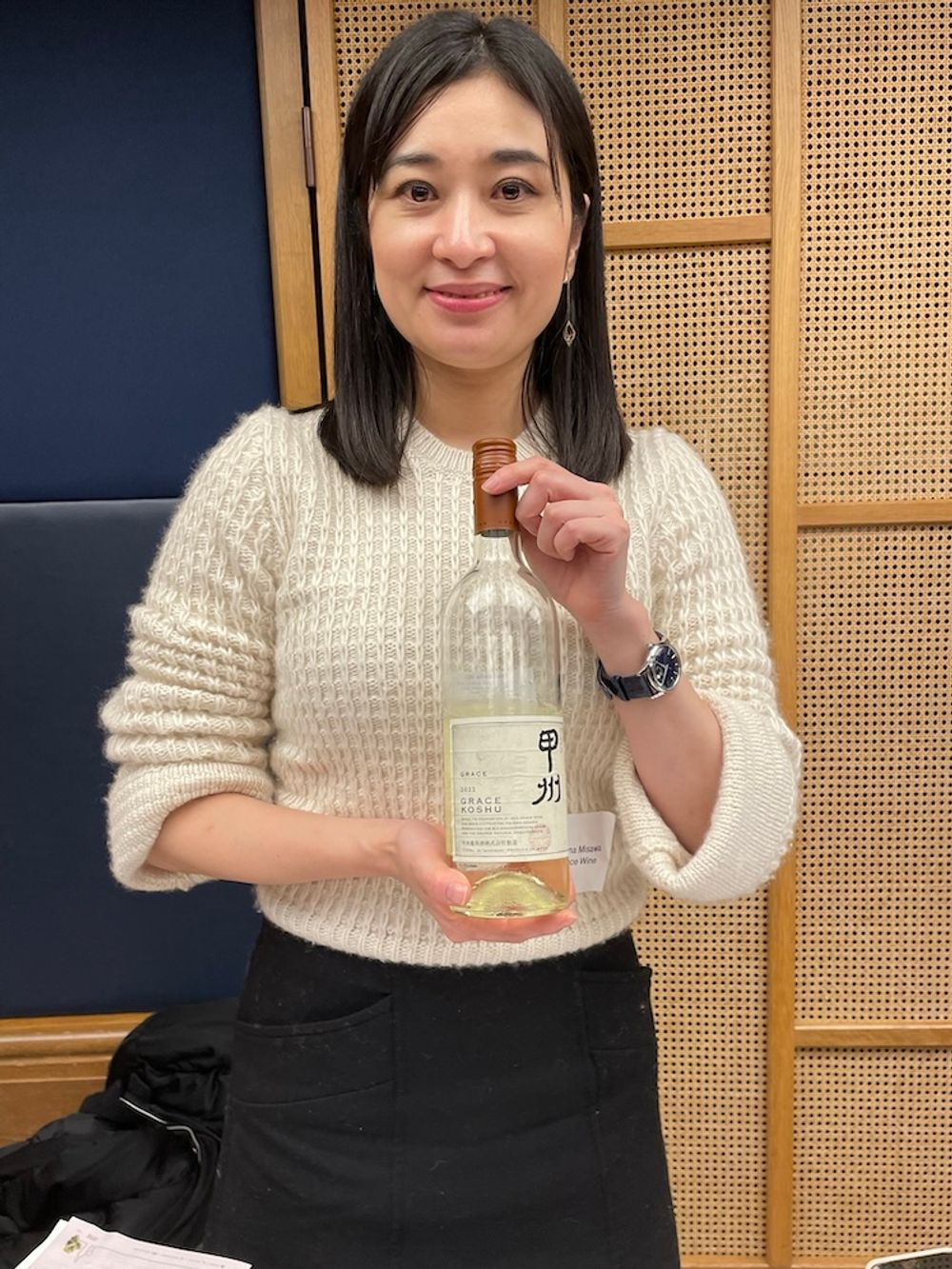
Ayana Misawa, Winemaker and 5th generation of Grace Wine
Grace Wine, Koshu Misawa Vineyard 2021 (UK importer: Hallgarten & Novum)
Savoury tones of roasted rice and genmaicha tea give way to the delightful essence of pickled peach on the finish.
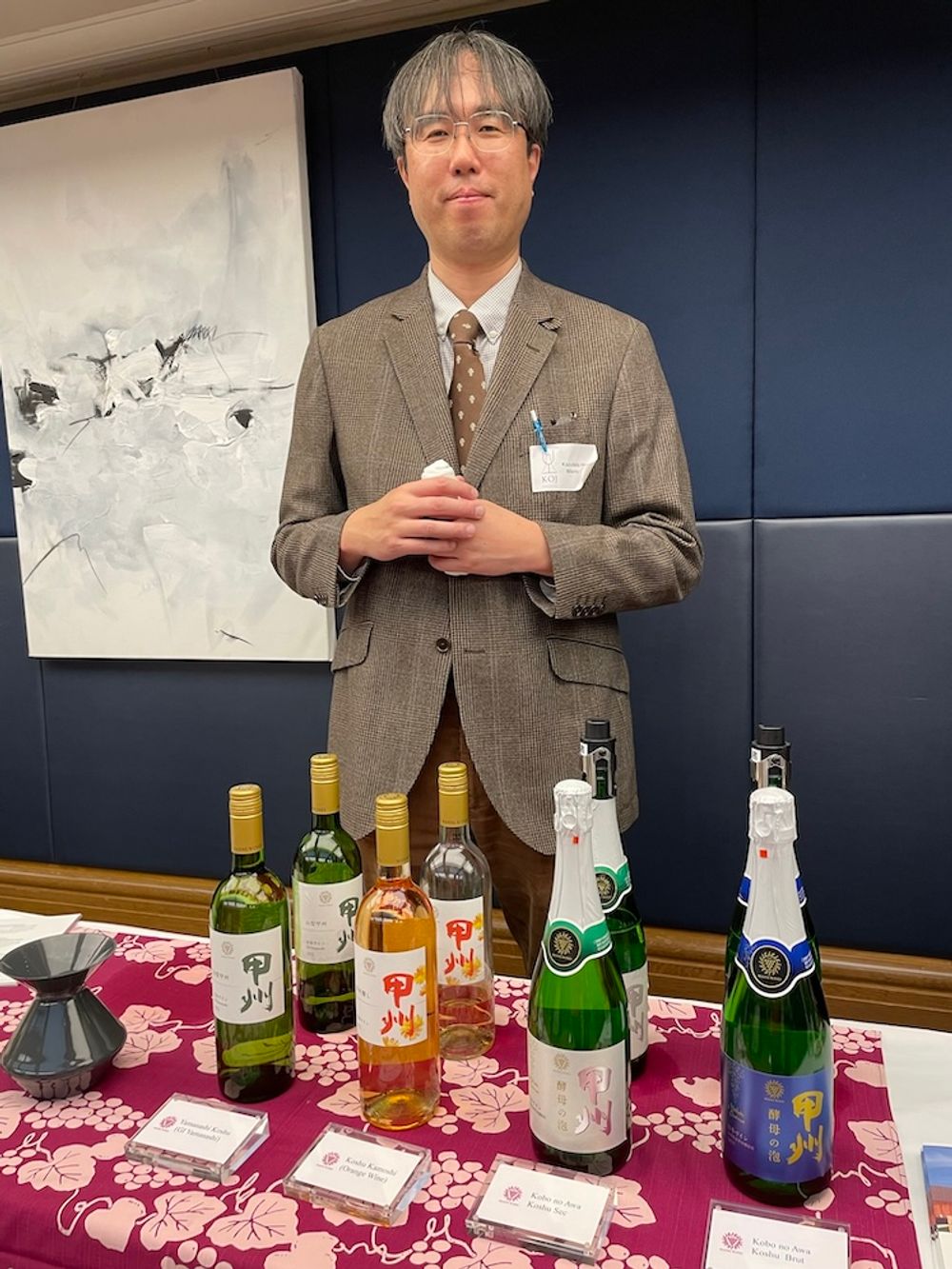
Hirose Kazutaka of Manns Wine
Manns Wine, Yamanashi Koshu 2022 (UK importer: JFC UK)
Balanced and neutral, with refreshing acidity, notes of citrusy and lime.
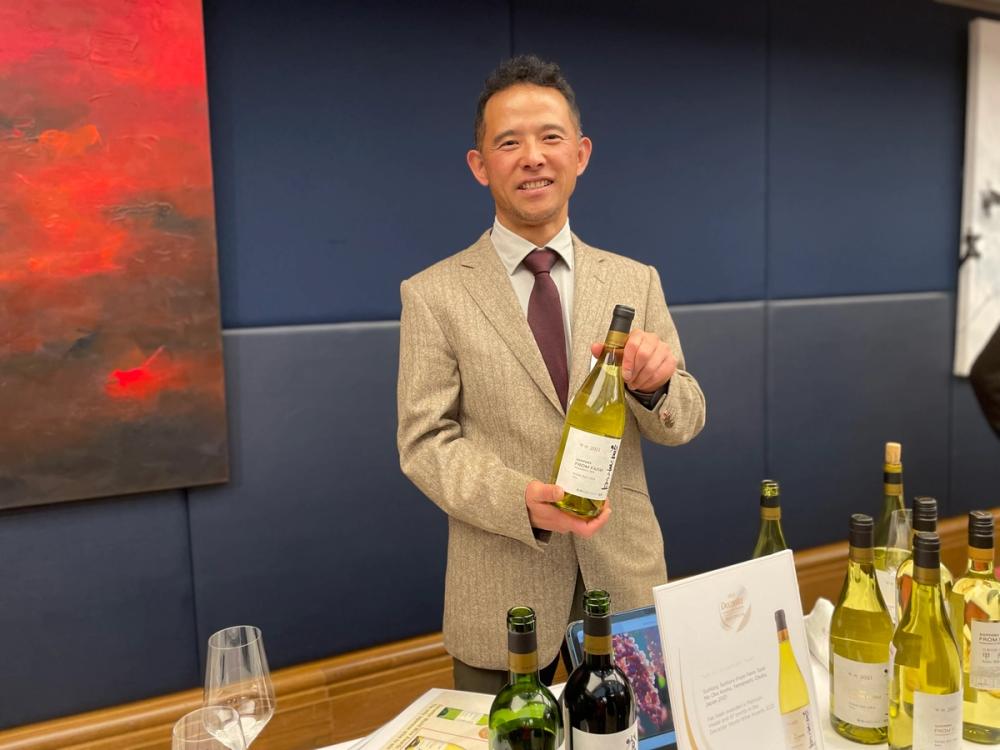
Fumio Shiogami, winemaker of Tomi no Oka Winery, Suntory
Suntory From Farm Tomi No Oka Koshu 2021
Abundant fruit intensity, with a rounded texture and a long limey finish.
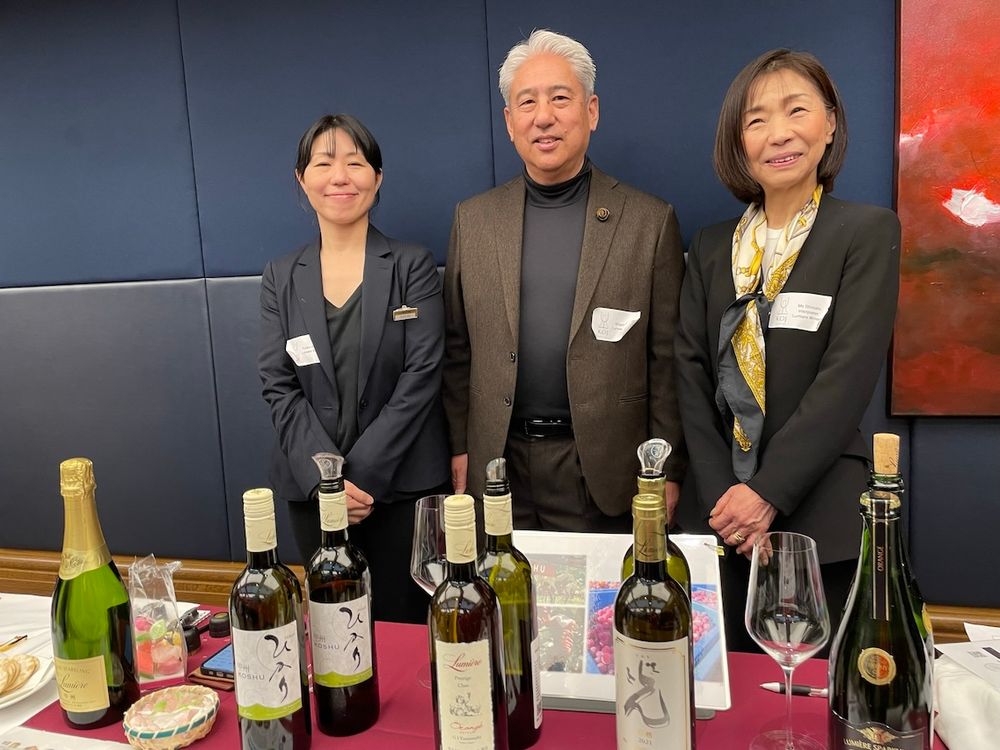
Shigeki Kida (middle) owner of Lumiere Winery
Lumiere Winery, Prestige Class Orange 2022 (UK importer: Amathus Drinks)
Hint of silky tannins, with orange peel notes and a peachy finish.

Chihiro Takei of Sainte Neige
Sainte Neige Makioka Koshu Orange Wine 2022
Mandarin and apricot flavours shine through, accompanied by a subtle tannic grip from the skins.









